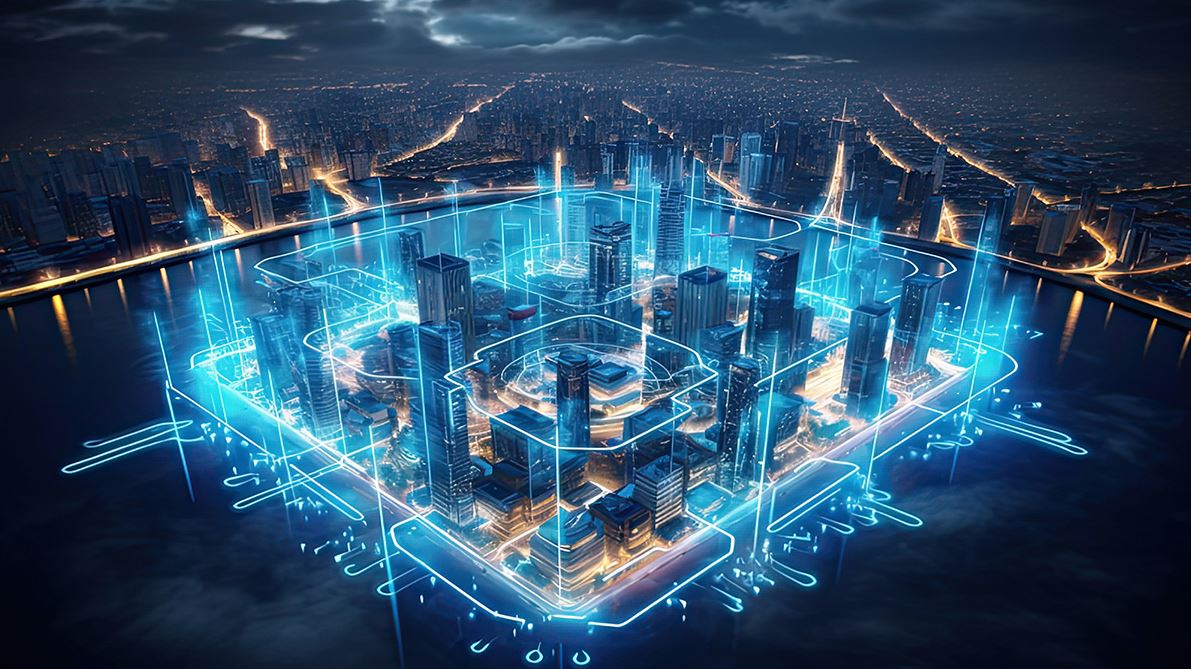Cybersecurity in Smart Cities
Protecting the Digital Foundations of Urban Life

Urban life is changing at a pace never seen before. Cities are no longer just concrete structures and transportation systems. They are becoming highly connected ecosystems powered by data and digital technology. Smart cities promise improved efficiency, sustainability, and convenience through connected infrastructure, intelligent traffic systems, and digital public services. But with this transformation comes a critical challenge: cybersecurity.
What Makes a City Smart
A smart city integrates technology into its core functions. Sensors monitor traffic flow, smart grids optimize energy distribution, and connected services manage everything from water supply to waste disposal. Data collected from these systems enables real-time decision-making, improving quality of life and reducing environmental impact.
However, this connectivity creates an extensive digital footprint. Every device, from streetlights to surveillance cameras, is connected to a network. While this offers tremendous benefits, it also creates potential entry points for cyberattacks.
The Growing Threat Landscape
Cybersecurity threats in smart cities are not hypothetical. They are a growing reality. Attacks can range from disabling traffic lights to disrupting power grids. The consequences are not limited to inconvenience. A well-coordinated cyberattack could paralyze emergency response systems or compromise critical infrastructure, putting lives at risk.
The complexity of smart city networks adds to the challenge. Unlike traditional IT environments, these systems involve a mix of hardware, software, and operational technologies. Many devices have limited processing power, making it difficult to implement advanced security features. As a result, vulnerabilities can remain undetected until exploited.
Key Areas of Concern
Critical Infrastructure
Power grids, water systems, and public transportation networks are central to city operations. Cyberattacks on these systems can cause widespread disruption and economic damage. Securing them requires layered defense strategies, continuous monitoring, and rapid response capabilities.
IoT Devices
The Internet of Things is the backbone of smart cities. Sensors, cameras, and connected meters collect and transmit data constantly. Unfortunately, many IoT devices lack strong security protocols, making them susceptible to hacking. A single compromised device can serve as a gateway to an entire network.
Data Privacy
Smart cities generate massive amounts of data, much of it related to personal behavior and movement. Protecting this information is essential to maintaining public trust. Strong encryption, anonymization techniques, and strict access controls are necessary to safeguard citizen privacy.
Building Resilient Smart Cities
The foundation of cybersecurity in smart cities lies in proactive planning. Security cannot be an afterthought. It must be integrated into every layer of design and deployment. This includes using secure communication protocols, regular vulnerability assessments, and implementing zero-trust architecture, which assumes no device or user is inherently trusted.
Artificial intelligence and machine learning can play a vital role in strengthening defenses. These technologies can detect unusual patterns in network traffic and identify threats before they cause harm. Automated response systems can isolate compromised components, reducing the impact of attacks.
Public awareness and collaboration are also essential. Citizens need to understand the importance of cybersecurity in their daily interactions with smart services. Governments, technology providers, and cybersecurity experts must work together to create standards, share intelligence, and ensure compliance with best practices.
The Role of Policy and Regulation
Governments have a critical role in shaping the cybersecurity framework for smart cities. Clear regulations and enforcement mechanisms are needed to hold vendors and operators accountable for security practices. International cooperation is equally important since cyber threats do not respect borders. Global standards for IoT security, data protection, and network resilience will help reduce vulnerabilities across interconnected systems.
A Vision for the Future
Smart cities represent the future of urban living. They promise cleaner environments, efficient transportation, and improved public services. However, without robust cybersecurity measures, these benefits could come at a cost far greater than anticipated. The goal is not to slow down innovation but to ensure that progress is built on a secure foundation.
At BitPulse, we believe that technology should empower society, not expose it to new risks. As cities become smarter, cybersecurity must become stronger. The choices made today will define not only the safety of digital infrastructure but also the trust of the people who depend on it.
